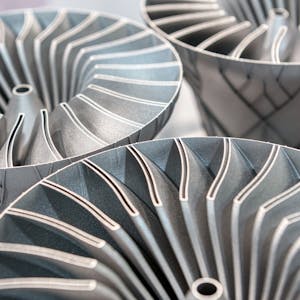This specialization offers a comprehensive introduction to additive manufacturing (AM), exploring the process, materials, and design elements. Through exposure to six different AM processes, students gain insights into build preparation, machine setup, and post-processing requirements. The course also covers cross-cutting aspects such as part orientation, supports, design for additive manufacturing, key process parameters, and mechanical and surface properties.
Throughout the program, students will compare and contrast different additive manufacturing processes, including material extrusion, photopolymer resin processes, and powder bed fusion. Additionally, they will apply the Design for Additive Manufacturing (DfAM) staircase framework to make informed AM decisions.
Certificate Available ✔
Get Started / More Info
This course covers a broad overview of additive manufacturing processes, including material extrusion, photopolymer resin processes, powder bed fusion, and design for additive manufacturing using the DfAM staircase framework.
Students will compare and contrast different additive manufacturing processes and describe a typical AM process flow.
Students will identify the two ways in which to 3D print using the material extrusion process.
Students will identify the key elements of two photopolymer resin based processes: PolyJet and stereolithography.
Students will identify the key elements of powder bed fusion in the context of both polymers and metals.
Students will apply the DfAM staircase framework to make additive manufacturing decisions.
Statistical Thermodynamics explores the relationship between macroscopic and microscopic thermodynamics, ideal and dense gases, and non-equilibrium behavior. Understand...
Fabrication additive: l'impression 3D dans l'industrie offers comprehensive insights into additive manufacturing technologies and their industrial applications.
This course delves into the analysis and design of engineering structures, covering deflections, buckling, combined loading, and failure theories.
Robotics: Mobility explores the design of robot bodies and behaviors for navigating unstructured environments using motors and sensors. Students will learn about...